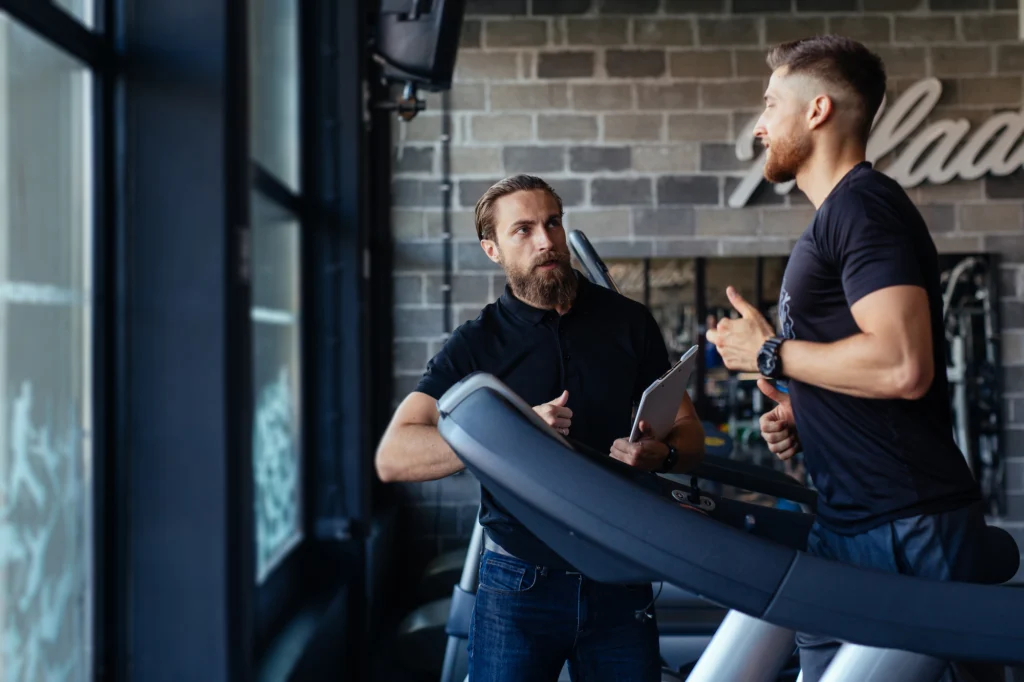The Top Character Traits of Successful Fitness Coaches

Precision Nutrition and Change Maker Academy took a deep dive into the personalities and behaviors of over 5,000 health and fitness professionals
Competition is fierce in the fitness industry, and client expectations continue to rise. What sets the best coaches apart? This question lies at the heart of a two-year study conducted by Precision Nutrition and Change Maker Academy, led by John Berardi, PhD.
Delving into the personalities and behaviors of over 5,000 health and fitness professionals, the study reveals five key traits shared by the most successful coaches in the industry. The analysis deciphers what distinguishes health and fitness coaches, and the factors that will most likely help them succeed.
A Look at Methodology
Researchers gathered demographic data — location, level of education and income level — from thousands of health and fitness professionals. They assessed participants’ personalities and aptitudes using the scientifically validated Caliper Profile, an in-depth personality assessment that measures both behavioral traits and intellectual abilities. Currently, it measures 22 traits that have been shown to be relatively stable over time.
Berardi, who founded Precision Nutrition, says the initial spark for the study came from learning how the NBA’s Toronto Raptors were using personality profiling to evaluate draft picks, demonstrating the practical applications of such tools in team dynamics.
“Impressed by Caliper’s data and its potential applications in various business sectors, we incorporated their profiling tools in our recruitment process as our company grew. This approach not only facilitated hiring but also enhanced management and teamwork strategies,” Berardi says.
The research was parsed through thousands of data points to distill the essence of what makes a coach truly effective and successful. The findings, encapsulated in a detailed 23-page report, shed light on the common personality traits among top-performing coaches while also offering an in-depth look at the broader coaching industry.
What personality traits and characteristics are helping health and fitness coaches get ahead, and what characteristics should employers seek when recruiting? A summary of the five characteristics offers insight.
Trait One: Assertiveness
Successful coaches use assertiveness to communicate effectively, set clear expectations and motivate their clients. But it’s not about being domineering; it’s the ability to assert one’s expertise and guidance with confidence and clarity.
Assertiveness allows coaches to convey their ideas, expertise and feedback clearly and confidently, fostering an environment where open dialogue and mutual respect thrive. It’s neither passive nor aggressive; instead, it strikes a balance by acknowledging and respecting both the coach’s and the client’s needs and rights.

The report underscores the significance of assertiveness in avoiding misunderstandings, setting clear boundaries, and navigating challenging conversations, such as discussing unpaid fees or providing tough feedback, all while maintaining a positive rapport and mutual respect with clients.
Trait Two: Level-Headedness
The ability to remain composed under pressure is crucial in the fast-paced fitness environment. Coaches who maintain their calm can make informed decisions, provide stable guidance, and navigate the ups and downs of client progress with grace.
Level-headedness, as identified in the study, refers to the capacity to remain calm and maintain a steady disposition. This trait enables fitness professionals to navigate the inherent challenges and stresses of coaching with composure and rationality.
In coaching, level-headedness facilitates a constructive environment where critical feedback can be given and received, decisions are made judiciously, and the coach-client relationship is fortified against the stress of rigorous training.
High scorers on this scale demonstrate an ability to approach both every day and high-pressure scenarios without emotional reactivity, which can derail decision-making and client trust. Conversely, those with lower scores may struggle to manage their emotional responses.
Trait Three: Empathy
Empathy is the bridge that connects a coach’s expertise to their client’s personal journey. This trait allows coaches to understand and relate to their clients on a deeper level, supporting a trustful, safe relationship that can weather the challenges of personal transformation.
The significance of empathy in coaching directly impacts a coach’s ability to encourage open communication and vulnerability. This connection is crucial for personalizing coaching strategies that resonate with clients’ unique experiences and challenges, leading to more effective and sustainable behavior change. While innate to some degree, empathy can be developed and refined.
Berardi says that, overall, the report’s findings didn’t particularly surprise him; however, an unexpected insight was the role of empathy in coaching effectiveness and financial success.
“Contrary to the assumption that higher empathy might impede objective decision-making, our findings suggest a ‘sweet spot’ where moderate empathy enhances coaching effectiveness without compromising personal boundaries or emotional resilience,” Berardi says. “This nuanced understanding of empathy challenges common narratives about the traits necessary for entrepreneurial success, suggesting that a balanced level of empathy can contribute to both effective coaching and financial prosperity.”
Trait Four: Urgency
A sense of urgency drives successful coaches to prioritize tasks and keep both themselves and their clients focused on the end goals. Urgency ensures that progress is consistent and that motivation remains high.
“This trait corroborated the often-touted self-help mantra that action trumps ideas, providing empirical support for the notion that a proactive approach to goals is a determinant of higher earnings in the health and fitness sector,” Berardi says.

High scorers in urgency are characterized by their drive to act promptly, making them adept at handling tasks efficiently. This trait is particularly advantageous for health coaches, where the ability to make decisions and execute actions promptly can significantly impact a client’s progress and satisfaction.
A balanced sense of urgency can catalyze enhanced planning and time management skills, which are crucial for fitting in future goals, business ideas or educational opportunities. However, the study advises against unbridled urgency, as it can result in poor decision-making and setbacks.
Trait Five: Investment in Ongoing Education
While not a Caliper trait, one of the most powerful correlations the study observed was that health and fitness coaches who spent more money annually on their continuing education also made more money.
“Investment in ongoing education emerged as a crucial factor for success,” Berardi says. “This trait showed a strong correlation with both increased income and professional satisfaction among coaches. The study found that coaches who allocate more resources annually towards their continued learning not only enhance their earning potential but also significantly outperform their peers in client retention and satisfaction.”
The study suggests that coaches who pursue further learning not only broaden their knowledge and skills but also gain added credibility and an increased scope of practice.
Next Steps for Application
Berardi is hopeful that the information in the report will help decision-makers refine their approach to education, recruitment, professionalism and more.
Future trends in the health and fitness industry, according to Berardi, revolve around adapting to technological advancements, including artificial intelligence, refining hiring and training processes, and learning from other industries.
“These trends highlight the importance of balancing traditional coaching skills with new technological competencies, ensuring that professionals are equipped to meet the changing demands of the industry,” he says. “The industry must adopt more structured frameworks and best practices for hiring, inspired by the mature approaches of adjacent fields. This approach does not require reinvention, but rather adapting proven strategies to the unique context of health and fitness.”
Read the full report from Precision Nutrition and Change Maker Academy here.



